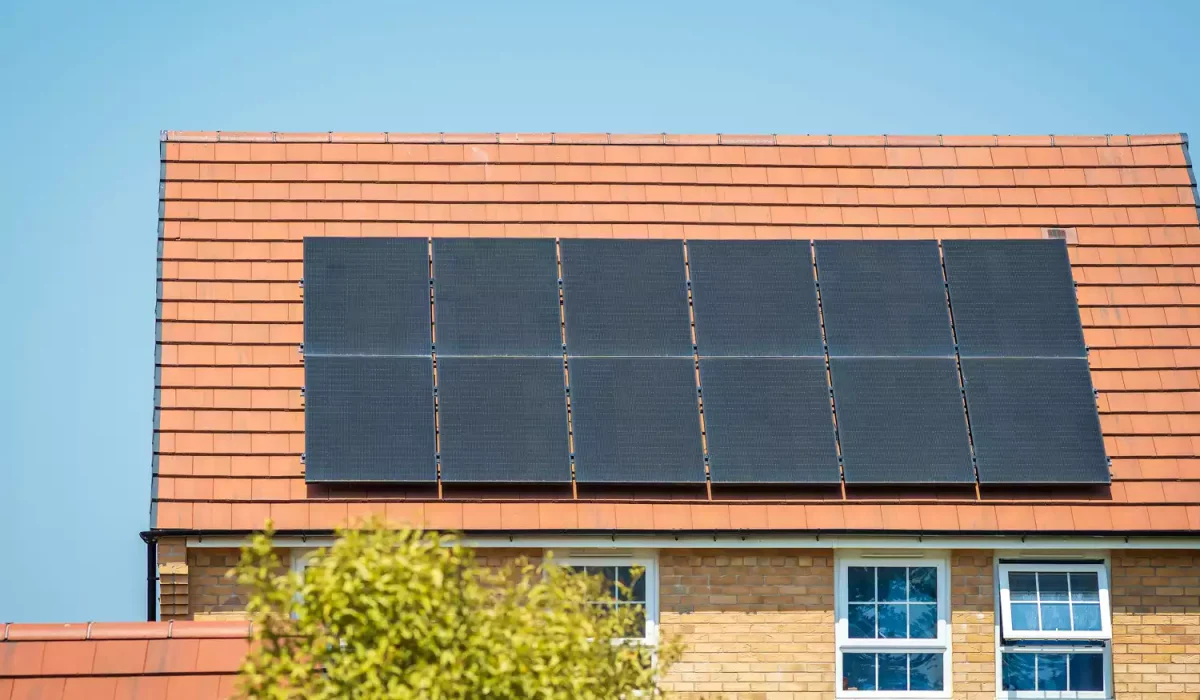Are Solar Panels Worth It in the UK?
With rising energy prices and a growing focus on sustainability, many homeowners are asking: “Are solar panels worth it?”
The simple answer is yes—for most UK households, solar panels are a smart long-term investment. They lower energy bills, protect against future price hikes, and reduce your carbon footprint. But whether they’re right for you depends on your home, energy usage, and budget.
This guide explores the costs, savings, payback period, and overall benefits of solar panels in the UK, helping you decide if they’re worth it for your home.
Get Your FREE Quote for Solar Panels
Fill in our solar panel quote form, and within 24 hours we’ll design and cost a complete system tailored to your property.
How Much Do Solar Panels Cost?
The cost of solar panels has fallen significantly in recent years, making them more affordable. In 2025, the average price of installing solar panels in the UK is:
| System Size | Avg. Cost (including installation) | Annual Generation (kWh) | Suitable For | 3kW | £5,000–£6,000 | 2,500–3,000 | Small homes |
|---|---|---|---|
| 4kW | £6,000–£7,500 | 3,500–4,000 | Average homes |
| 5kW | £7,500–£9,000 | 4,500–5,000 | Larger homes |
| 6kW+ | £9,000–£11,000+ | 5,500–6,000+ | High usage households |
Adding a solar battery increases upfront costs by £3,000–£8,000, but lets you store excess electricity for evening use, improving overall savings.
How Much Can You Save with Solar Panels?
The main reason homeowners install solar panels is to reduce electricity bills. Here’s what you can expect:
1. Bill Savings
-
A typical 4kW system can save £400–£600 per year on electricity.
-
Homes with higher usage or a solar battery can save more.
2. Smart Export Guarantee (SEG) Payments
Under the Smart Export Guarantee, you can sell unused electricity back to the grid. Depending on your supplier, this could earn £100–£200 annually.
3. Combined Savings
Overall, most households save £500–£800 per year. Over 25 years, that’s £12,500–£20,000, far outweighing installation costs.
Payback Period
Solar panels typically pay for themselves within 8–12 years. After that, the electricity you generate is essentially free, and you continue to earn from SEG payments.
With energy prices still high, payback times are shorter today than they were five years ago.
Are There Solar Grants or Incentives?
While the old Feed-in Tariff (FIT) closed in 2019, there are still incentives available:
-
0% VAT on solar panels and battery installations until 2027.
-
SEG payments for surplus electricity exported.
-
ECO4 and Home Upgrade Grant (HUG2): Some households may qualify for additional funding, especially if on low income or in older properties.
-
Home Energy Scotland also offers loans and grants for Scottish residents.
These schemes help reduce upfront costs, making solar panels even more worthwhile.
Are Solar Panels Reliable in the UK Climate?
Yes. Solar panels don’t rely on sunshine alone—they generate electricity from daylight, even on cloudy days.
-
In winter, output drops, but panels still generate electricity daily.
-
Cold weather actually improves panel efficiency, even if daylight hours are shorter.
-
Over the year, UK solar panels typically cover 50–70% of a household’s electricity demand.
Benefits of Solar Panels Beyond Savings
While the financial case is strong, solar panels offer other valuable benefits:
1. Energy Independence
By generating your own electricity, you reduce reliance on the National Grid and shield yourself from energy price volatility.
2. Environmental Impact
A typical 4kW system reduces your carbon footprint by 1–1.5 tonnes of CO₂ per year. That’s equivalent to planting dozens of trees annually.
3. Property Value
Homes with solar panels often attract buyers and can sell for more, thanks to improved EPC ratings and reduced running costs.
4. Low Maintenance
Solar panels have no moving parts and require little maintenance beyond an occasional clean and system check.
When Are Solar Panels Not Worth It?
Solar panels aren’t the right choice for everyone. They may be less suitable if:
-
Your roof is heavily shaded by trees or nearby buildings.
-
You have very low electricity usage.
-
You plan to move house within a few years (though they may still increase resale value).
A professional survey can confirm whether your home is suitable.
Future-Proofing with Solar Battery Storage
- Cut grid reliance by up to 80–90%.
- Shorten your payback period.
- Provide backup power during outages.
So, are solar panels worth it in the UK? Yes. For most homeowners, the combination of lower bills, SEG payments, environmental benefits, and long-term reliability makes solar panels a smart investment in 2025.
With installation costs from £5,000–£7,500 for a typical system and annual savings of £500–£800, solar panels usually pay for themselves within a decade and continue delivering free electricity for 15 years or more after that.
At SolarPanels.co.uk, we make it simple to compare quotes from trusted MCS-certified installers and find the right solar system for your home. If you’re ready to cut bills and future-proof your energy, now is the time to go solar.

